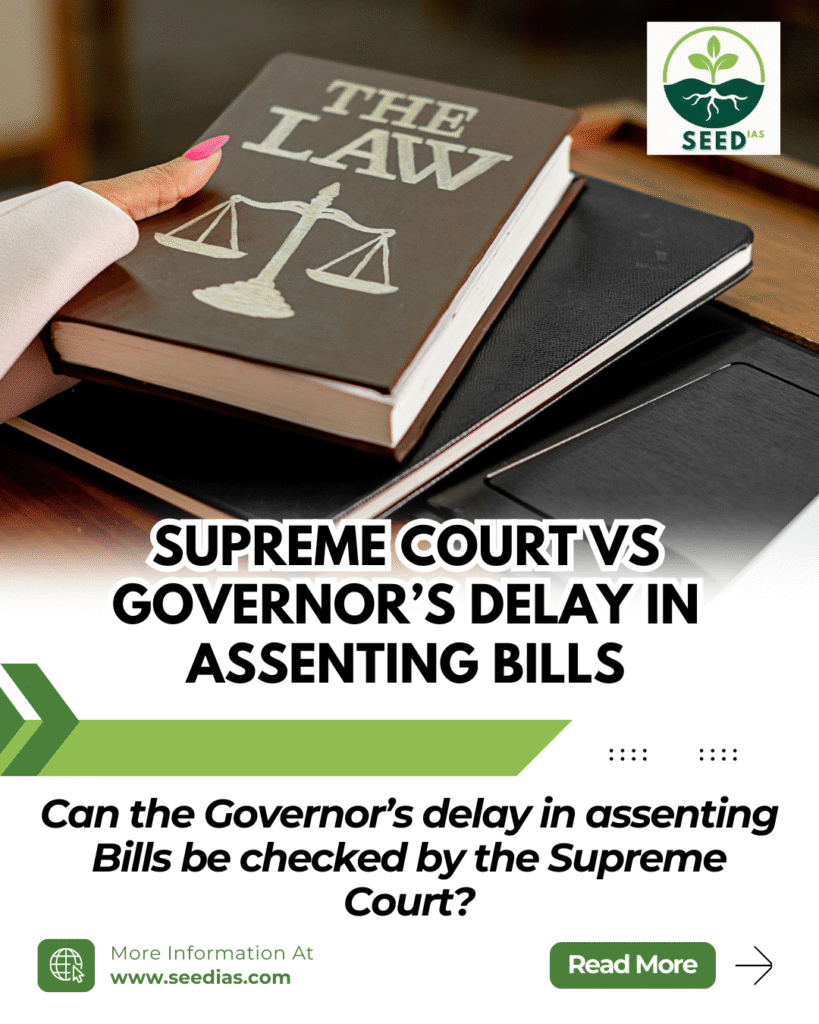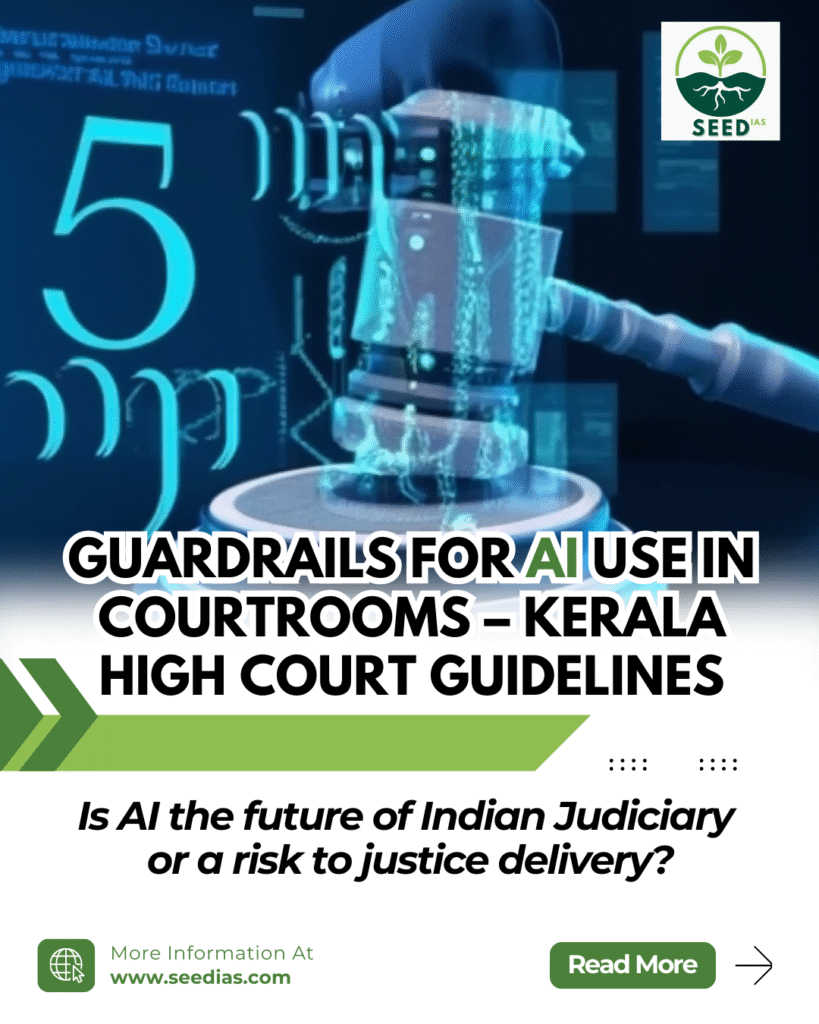Why in News?
Chief Justice of India B.R. Gavai questioned whether the Supreme Court should remain powerless as Governors sit on State Bills for years, thereby stalling the democratic will of elected legislatures. The issue arose after reports that the Tamil Nadu Governor had kept Bills pending for almost four years.
Concept Corner
| Keyword | Explanation |
| Governor’s Assent (Art. 200) | Governor may: (a) give assent, (b) withhold, (c) return (except Money Bills), or (d) reserve for President. Constitution is silent on time limits. |
| Judicial Review | Courts can examine executive/legislative actions; part of Basic Structure. |
| Separation of Powers | Legislature makes laws, Executive implements, Judiciary interprets. Each must respect boundaries. |
| Judicial Activism | Courts actively intervene when other organs fail (e.g., framing guidelines, directing timelines). |
| SC April 2024 Judgment | Held that if Governor/President does not act within 3 months, Bill will be deemed approved. |
Judicial Activism
- Meaning: Judiciary actively intervenes in governance when other organs fail to act. Goes beyond mere interpretation.
- Examples:
- Kesavananda Bharati (1973) → Basic Structure Doctrine.
- Vishaka Guidelines (1997) → Workplace harassment rules framed by SC.
- Recent: April 2024 judgment on Governor’s timelines for Bills.
| Arguments FOR | Arguments AGAINST |
| Protects fundamental rights. | Encroachment into legislature/executive’s role. |
| Ensures accountability of executive & legislature. | Violates principle of Separation of Powers. |
| Acts as guardian of the Constitution. | Judicial overreach may weaken democratic accountability. |
| Provides remedy when political process fails. | Not all issues are justiciable (some are political questions). |
Core Issues in Debate
| Supreme Court’s View | Centre’s/Union View |
| Governors withholding Bills for years undermines democracy. | Delay may have political/democratic reasons, not for courts to decide. |
| Judicial review is part of Basic Structure; SC cannot remain powerless. | Constitution does not specify timelines; court cannot create them. |
| Without timelines, Bills remain in a “constitutional vacuum.” | Each organ must stick to its domain (separation of powers). |
| Governor not answerable to people → need judicial accountability. | Political remedies exist; Governors are constitutional functionaries. |
| If the Court can strike down a Constitutional Amendment (42nd), it can also review gubernatorial inaction. | Judicial restraint is necessary; tying down Governor/President undermines their position. |
Recent Developments
- April 2024 SC Judgment: Deemed assent after 3 months if no action by Governor/President.
- States’ Complaints: Tamil Nadu, Kerala, Punjab, Telangana raised concerns over Governor’s delay.
- Federal Tensions: Growing clash between Union-appointed Governors and Opposition-ruled States.
Practice Question (UPSC Prelims Style)
Which of the following statements is/are correct regarding Governor’s role in State Bills?
- The Constitution prescribes a specific time limit within which the Governor must act on a Bill.
- A Governor may reserve certain Bills for the consideration of the President.
- Judicial review of a Governor’s inaction on Bills is excluded by the Constitution.
Options:
(a) 1 only
(b) 2 only
(c) 1 and 3 only
(d) 2 and 3 only
















